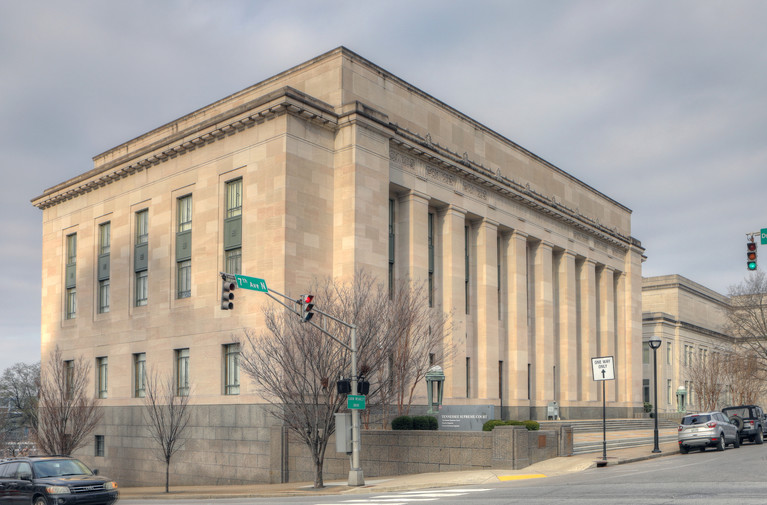Tennessee Supreme Court Questions ABA’s Role in Law School Accreditation Amid National Backlash
In a bold challenge to the gatekeepers of legal education, Tennessee’s highest court is probing whether the American Bar Association’s iron grip on accreditation stifles innovation and access to justice. As states like Florida and Texas pile on, this scrutiny could reshape who gets to practice law across America.
The Court’s Call for Public Input: A Turning Point in Legal Regulation
On September 16, 2025, the Tennessee Supreme Court issued an administrative order inviting public comments on sweeping reforms to lawyer licensing and law firm oversight. At the forefront: whether to dial back or ditch the mandate that aspiring lawyers graduate from ABA-accredited schools to sit for the bar exam.
The court, which oversees bar admissions through the Tennessee Board of Law Examiners, emphasized addressing “unmet legal needs” in underserved areas, particularly rural Tennessee. Comments are due by December 1, 2025, with the order signaling a potential shift toward state-led approvals for non-ABA schools.
This isn’t Tennessee’s first dance with alternatives. Since 2001, the court has maintained standards for approving non-ABA law schools, like Nashville School of Law, allowing their grads to take the bar if they meet rigorous criteria. Graduates from similar out-of-state programs have qualified since 2016.
Roots of the Rift: DEI Mandates and Post-SFFA Fallout
The push stems from broader conservative critiques of the ABA, amplified by the U.S. Supreme Court’s 2023 Students for Fair Admissions v. Harvard ruling, which struck down race-based admissions in higher education. ABA Standard 206, which urged diversity in faculty and student bodies, drew fire as potentially discriminatory.
In November 2024, Tennessee AG Jonathan Skrmetti led 21 Republican-led states in a letter demanding revisions to Standard 206, arguing it clashed with the high court’s equal protection mandate. The ABA paused enforcement and proposed tweaks, but critics like Skrmetti called them insufficient.
Tennessee’s review also eyes easing bans on non-lawyer ownership of firms and fee-sharing, moves Arizona pioneered to boost affordability. These reforms aim to flood rural markets with more lawyers, tackling a shortage where over 40 Tennessee counties lack full-time attorneys.
A National Wave: Florida, Texas, and Ohio Join the Fray
Tennessee isn’t alone. Florida’s all-Republican Supreme Court launched a workgroup in March 2025 to probe ABA reliance, citing its “political engagement” and paused diversity rules.
Texas followed in April, with Chief Justice Nathan Hecht slamming the ABA for “woke” mandates; the court now solicits alternatives like state-specific approvals. Ohio’s probing echoes this, potentially creating a patchwork of standards.
The Association of American Law Schools fired back in an open letter, defending national accreditation for consistency. About 33 U.S. law schools operate without ABA nods, mostly in California, proving viability.
Voices from the Bar: Experts and Reactions Heat Up
ABA Managing Director Jenn Rosato Perea welcomed Tennessee’s review, vowing to showcase how accreditation safeguards quality for grads and the public. “We look forward to demonstrating our standards’ benefits,” she said.
On Reddit’s r/Lawyertalk, lawyers split: Some hail ditching the ABA as breaking a “monopoly,” citing subpar accredited schools; others fear quality dips without uniform oversight. One user quipped, “Tennessee’s setup has been beneficial overall.”
Legal educators worry about fragmentation. The Federalist Society noted the AGs’ push aligns with SFFA, but implementation could vary wildly. Trump-era FTC moves, banning staff ABA memberships, add fuel, questioning the group’s accrediting clout.
Ripples for American Lawyers: Access, Costs, and the Future of Justice
For U.S. readers, this hits the legal economy hard—law schools generate billions, but accreditation hikes tuition, pricing out diverse talent. Easing ABA ties could slash costs at places like Nashville School of Law, where part-time programs cost under $20,000 versus $200,000+ at ABA spots.
Lifestyle perks? More lawyers in rural spots mean faster family law resolutions or contract help for farmers, easing urban-rural divides. Politically, it’s red-state rebellion against perceived liberal bias, potentially influencing midterms on education reform. Tech angles include online programs gaining traction without ABA hurdles, boosting edtech firms.
Sports? Tangentially, it mirrors NIL debates—empowering states over national bodies for fairer play.
Reform on the Horizon: Balancing Innovation and Standards
Tennessee’s Supreme Court questioning the ABA’s accreditation role marks a pivotal moment in reimagining legal access, driven by equity concerns and post-SFFA realities. As public input rolls in, expect a hybrid model blending national quality with state flexibility. For lawyers and clients alike, this could democratize the bar—but only if safeguards prevent a race to the bottom. Watch for December’s fallout; the Volunteer State’s move might just volunteer a blueprint for the nation.
Tennessee Supreme Court ABA accreditation, ABA law school mandate challenge, Tennessee lawyer licensing reform, non-ABA law schools Tennessee, ABA diversity standard criticism, state AGs ABA letter, Florida Texas Ohio ABA review, SFFA impact on legal education, rural legal access Tennessee, law school accreditation alternatives
